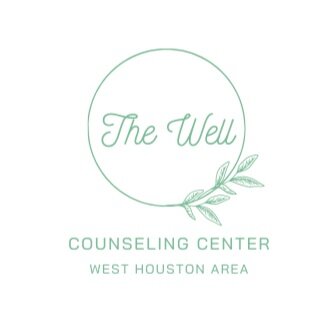Nourishing Your Mind: How Gut Health Affects Your Mental Health
“It’s important that the brain and the gut are both well- tended so that we can show up optimally for this one beautiful life that we’ve been given on this earth.”
Written by: Meredyth Fletcher
Hippocrates said that “All disease begins in the gut.” And through years of research and clinical application, I personally believe that all (or most) healing also begins, or has a place of healing, in the gut. Including mental health.
It’s been said that the Gut is the second brain of the body. This is because the brain and the gut are directly connected through thousands of tiny neurotransmitters that wrap around the GI tract all the way from the base of the spine to the stomach, and are controlled by your enteric nervous system –The brain and the gut are talking to one another all day long.
Have you ever felt nervous before a meeting, or nauseous before a big event? How about feeling sick to your stomach upon hearing a sad or shocking story or having a “gut feeling?” This is because the brain and the gut are so closely connected that signaling to one is felt and impacting to the other. This includes when the body feels anxious and it determines how optimal the gut can feel after a meal (i.e. no bloat or uncomfortability!)
It’s important that the brain and the gut are both well-tended so that we can show up optimally for this one beautiful life that we’ve been given on this earth.
Our body makes happy hormones that enable us to think clearly, self regulate, be less anxious, and happy. These main two are called serotonin and dopamine. About 90-95% of our serotonin is produced in the gut and more than 50% of the body’s dopamine is as well. This means that we need the gut to be well taken care of so that these happy hormones can be produced in robust amounts to be sent to the brain to experience calm and happiness.
Likewise, when we experience anxiety, digestion is impaired. Digestion is a top priority of the body and it doesn’t digest optimally unless it’s in a state of safety and calm. (i.e. not stressed). Do you experience bloating after meals or GI uncomfortablity when you feel stressed? It’s likely that the neurotransmitters are scanning for safety and holding tight to the GI tract until it's in a state of peace. We must enter into a place of peace in order for our gut to digest, it’s the way we were strategically designed.
What do we do to support seasons of anxiousness and/or GI upset? Let’s take a look:
Tips for a healthy gut microbiome to support anxiety symptoms
Eat mostly a diet made with whole foods
Eat lots of protein every 2-4 hours during the day
Eat lots of leafy greens | 4-6 cups per day
Limit or avoid refined sugars and carbohydrates
Consume adequate amounts of Omegas, healthy fats are brain food
Eat a nourishing breakfast that includes animal protein within 30-60 minutes of waking
Drink half your body weight in oz of water each day
Tips for stress management to support a healthy gut microbiome
Avoid doing this while eating (i.e. driving, watching TV, working on the computer) | this helps reduce bloating immediately.
Get outside as much as possible
Walking after meals | This helps the body release its stress hormone, cortisol, and also helps regulate blood sugar which has a direct impact on mood.
20 minutes of unfiltered sunshine daily (no sunscreen the first 20 minutes of being outside)
Slow down at meals and chew your food thoroughly. | The more work your teeth do, the less work your gut has to do.
Spend time journaling each morning | getting into that state of calm promotes better digestion all day.
Exercise at least 3 times a week for 30 minutes | this helps the body’s stress hormone leave the body and helps reduce inflammation and stress in the gut
Aim for 7-9 hours of quality sleep each night
Learn how to set healthy boundaries and strive for healthy relationships.
Charge your phone in another room at night to reduce the temptation to lay in bed and scroll
Call your best friend and make dinner reservations
Talk therapy
If you decide to try any of these things, we’d love to hear from you and how they are positively impacting your healing journey. Remember to take it one day at a time and remember that you have what it takes. If you are interested in having someone navigate life stressors with you, therapy can be a great tool. Sometimes it helps to know that someone is with you and supportive of you, exactly where you are on your unique path towards healing, mind, body, and soul.
Written By: Meredyth Fletcher
References:
Gunnars, K. (2019, February 27). Does all disease begin in your gut? the surprising truth. Healthline. https://www.healthline.com/nutrition/does-all-disease-begin-in-the-gut#your-gut
The gut-brain connection. Harvard Health. (2023, July 18). https://www.health.harvard.edu/diseases-and-conditions/the-gut-brain-connection
Myers, Dr. A., & Myers, A. (2021, October 18). Serotonin & the gut: The gut-brain axis. Amy Myers MD. https://www.amymyersmd.com/article/serotonin-gut-health
Eisenhofer, G., Åneman, A., Friberg, P., Hooper, D., Fåndriks, L., Lonroth, H., Hunyady, B., & Mezey, E. (1997, November 1). Substantial production of dopamine in the human gastrointestinal tract. OUP Academic. https://academic.oup.com/jcem/article/82/11/3864/2866142
Ede, R. (2023, March 8). Rest and digest: The parasympathetic nervous system. LiveScience. https://www.livescience.com/parasympathetic-nervous-system-rest-and-digest
Admin. (2023, August 4). The connection between protein and your mental health. Mental Health Connecticut. https://www.mhconn.org/nutrition/protein-and-mental-health/
Lindberg, S. (2020, June 23). Your anxiety loves sugar. eat these 3 things instead. Healthline. https://www.healthline.com/health/mental-health/how-sugar-harms-mental-health

